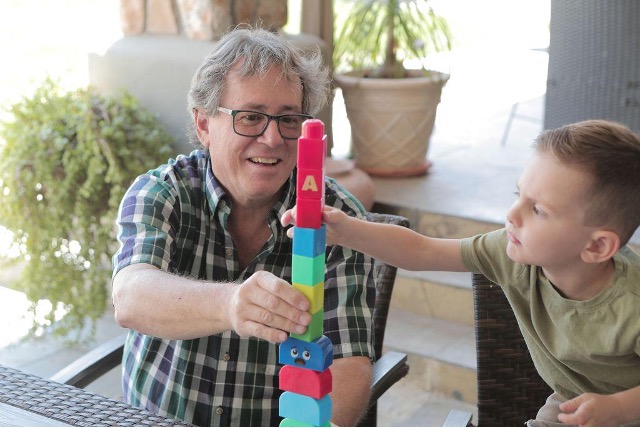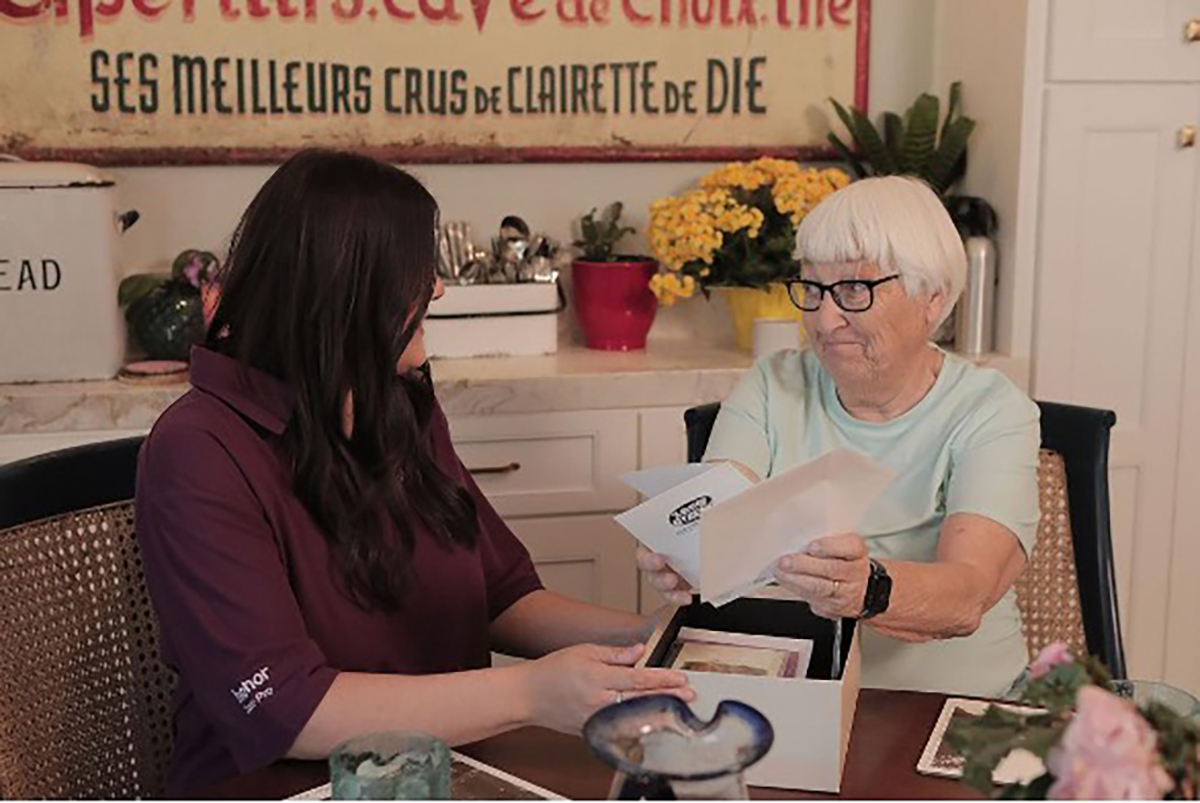One of the key aspects of dementia care is finding ways to keep your loved one engaged and active during the day. Although it’s not always easy to keep someone busy day in and day out, we want to help by offering our caregiver-tested tips that work great for our clients. Here are some of our most-asked questions surrounding activity and how we tackle them at Home Instead:
Why is it important to keep my loved one with dementia busy?
Dementia is a condition that affects memory, thinking, and behavior and can be isolating and frustrating for those living with it. This is why keeping your loved one engaged is so important. Engaging activities not only provide stimulation, but also improve their overall quality of life.

Think about it: haven’t you ever gone stir crazy from being cooped up in the house for too long? Your loved one is the same. Although it’s not feasible for them to plan their own daily activities, your job as a caregiver is to focus on their overall well being. Our Care Pros have time and time again seen a lot of success, both physically and mentally, when fun things are included in the daily routine.
What activities would work well for my loved one with dementia?
The first step in creating a quality routine for your loved one with dementia is to choose activities that are suitable for their interests and abilities. Every individual is unique, and what works for one person may not work for another. Tailor activities to their preferences, and be flexible as their needs may change over time.
Most importantly, consider their current stage of dementia. Early-stage patients may be able to engage in more complex activities, while those in later stages may require simpler, more sensory-based options.
What are good indoor activities to try?

- Crafting: Creative activities like painting, drawing, or crafting can be incredibly therapeutic. Even if your loved one has never been artistically inclined, they may still enjoy the process and fun that come with it.
- Simple Games and Puzzles: Board games, card games, and puzzles are excellent for mental stimulation. Lean towards games with large pieces and clear instructions to make them more accessible.
- Music and Memory Therapy: Music has a powerful effect on people with dementia. Play their favorite songs or music from their era. You may be surprised at how music can trigger memories and emotions.
What are good outdoor activities to try?

- Nature Walks and Garden Therapy: Getting outdoors can have a profound impact on someone with dementia. A simple walk in the garden or a nearby park can be both calming and stimulating. Encourage them to touch and smell flowers or feel the sun on their skin.
- Outdoor Games and Exercises: Light exercises like stretching or tossing a ball can improve physical health and coordination. Adapt these activities to their capabilities, and ensure safety.
- Visiting Parks and Community Events: Explore local parks, farmers' markets, or community events. These outings can provide a change of scenery and opportunities for social interaction if your loved one’s stage of dementia permits it.
Are there any activities that help my loved one’s memory?
Sensory stimulation involves engaging the five senses – sight, sound, touch, taste, and smell. By working directly with senses, it can trigger memories and evoke positive emotions. They can also help reduce anxiety and restlessness, common in dementia patients. We recommend trying out a few of these activities a week as a way to ground your loved one to their senses, helping them become more in-tune with themselves.
So what is a sensory stimulation activity? We like to pitch it as a sensory kit involving all things with textured objects, scented items, or fun materials. Although it requires a bit of craftiness from your end as a caregiver, these can be a ton of fun for all parties involved!
I want my loved one to socialize, but I’m not really sure how… Any tips?
Social isolation is essential to anyone, but can be difficult depending on the stage and symptoms your loved one is experiencing. Here are a few tips we recommend:
- Organize Family and Friend Visits: Schedule regular visits with loved ones and friends. Make sure visitors understand any current challenges and can engage in activities that your loved one enjoys.
- Join Support Groups and Dementia-Friendly Communities: Support groups offer not only emotional support but also a sense of community. This is an excellent space for both and your loved one can interact with others facing similar challenges.
Helping your loved one with dementia stay engaged during the day is essential for their well-being and quality of life. Remember, your loved one is unique, so be patient and open to adapting activities to their changing needs and preferences. If you need any help creating a routine that works for both your loved one and you as a caregiver, please don’t hesitate to reach out to Home Instead



